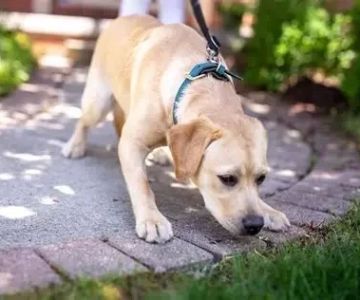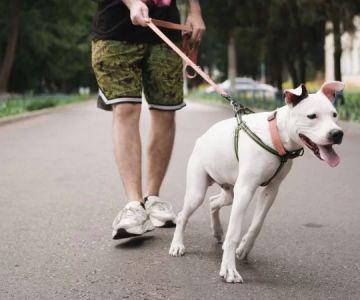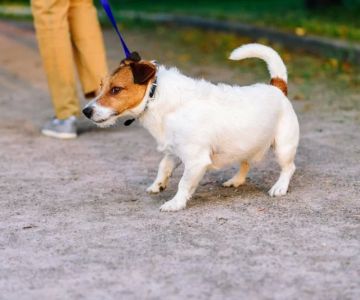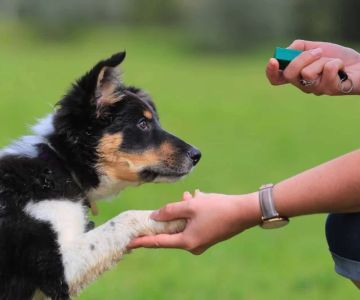How to Train a Dog to Stop Digging in the Garden
As a dog owner, one of the most frustrating behaviors to deal with is when your furry friend starts digging up your garden. It can be a destructive habit, leaving holes and damage in your flowerbeds, vegetable patches, and lawn. Over the years, I’ve had my own share of digging issues with my dogs, and I know how important it is to address it quickly and effectively. In this article, I’ll walk you through some proven methods on how to train your dog to stop digging in the garden, offering both solutions and understanding to help your dog break this behavior.
1. Understanding the Reason Behind the Digging
Before you can solve the problem of your dog digging in the garden, it’s crucial to understand why they’re doing it. Digging is a natural behavior for dogs, and there are several reasons behind it:
- Instinctual behavior: Dogs dig to create a comfortable space, cool down in hot weather, or hide food and toys.
- Seeking attention: If your dog notices that digging gets a reaction from you, whether positive or negative, they may continue doing it to get attention.
- Energy release: Dogs who are not mentally or physically stimulated enough may dig to release pent-up energy.
- Anxiety or fear: Some dogs dig when they’re anxious, stressed, or feeling insecure, such as when left alone or during storms.
Understanding these reasons can help you target the root cause of your dog’s digging and guide you in choosing the right training technique.

10130 Northlake Blvd Suite 114, West Palm Beach, FL 33412, USA
See Details2. Providing Enough Physical and Mental Exercise
If your dog is digging because they have excess energy, providing more exercise is often a great solution. Dogs, especially active breeds, require regular physical activity to stay healthy and mentally balanced. Take your dog on daily walks, engage in playtime, or consider running or hiking with them. The more exercise they get, the less likely they’ll be to dig in the garden out of boredom or excess energy.
Mental stimulation is also key in preventing digging. Puzzle toys, interactive games, or even training sessions can keep their brain busy. Dogs love a challenge, and providing them with one can help reduce destructive behaviors like digging.
3. Create a Designated Digging Area
One of the most effective ways to curb your dog’s digging behavior is by redirecting it. Rather than trying to completely eliminate digging, why not provide your dog with a designated digging area where they’re allowed to dig freely? A small, sand-filled pit or sandbox can be the perfect spot. Bury some of their favorite toys or treats in the sand to encourage them to use the designated area. Over time, your dog will learn that digging in the sandbox is acceptable, but digging in your garden is not.
Consistency is key. Whenever you catch your dog digging in the wrong area, redirect them to their sandbox and praise them when they dig in the correct spot. This method allows your dog to fulfill their digging instinct without damaging your garden.
4. Use Deterrents to Keep Your Dog Away from the Garden
If your dog is stubborn about digging in the garden, using deterrents may be necessary. There are a few non-harmful methods to deter them from digging:
- Smell deterrents: Dogs are sensitive to smells, so using citrus peels, vinegar, or store-bought sprays with strong scents like lavender can discourage them from digging in certain areas.
- Physical barriers: Fencing off your garden or using wire mesh buried just below the surface can prevent your dog from accessing the digging area.
- Motion-activated devices: Some motion-sensing devices emit a harmless burst of air or a sound that startles dogs when they approach the garden. This can be effective in teaching your dog to stay away from the area.
Using these deterrents in conjunction with positive reinforcement can help your dog associate digging in the garden with negative experiences, eventually breaking the habit.
5. Training Commands and Positive Reinforcement
Training your dog to stop digging involves consistent use of commands and positive reinforcement. Start by teaching your dog basic commands like “no” or “leave it.” When you catch your dog digging, immediately say the command and redirect them to a more appropriate activity, such as playing with a toy or going for a walk.
Whenever your dog listens to your commands and stops digging, reward them with praise, treats, or playtime. Positive reinforcement will teach your dog that good behavior results in rewards, while unwanted behavior like digging leads to correction and no attention.
It’s important to remain patient during this process. Dogs don’t change their behavior overnight, but with consistent training, they will eventually stop digging in the garden.
6. Addressing Separation Anxiety and Stress
For some dogs, digging in the garden can be a sign of separation anxiety or stress. If your dog tends to dig when left alone or during stressful situations, such as thunderstorms or fireworks, it’s crucial to address the anxiety. You can try leaving your dog with safe toys or calming items when you’re away. Crate training can also be effective for managing separation anxiety.
For dogs that are stressed due to external factors like loud noises, creating a safe space for them to retreat to can help. Consider using calming aids like pheromone diffusers or anxiety wraps that provide comfort during stressful times. If your dog’s anxiety is severe, consult with a veterinarian or a canine behaviorist to explore treatment options.
7. Be Patient and Consistent
Training your dog to stop digging in the garden requires time, patience, and consistency. Dogs don’t change their behavior overnight, and it’s essential to stay calm and consistent with your training methods. Punishment is not effective in changing behavior and may harm the bond you share with your pet. Instead, focus on providing alternatives, offering positive reinforcement, and addressing any underlying issues like anxiety or boredom.
Remember, dogs are creatures of habit, and with the right approach, they can learn where it’s appropriate to dig and where it’s not. Be patient and celebrate the small victories along the way!
By understanding your dog’s behavior and providing the proper training, you can enjoy a beautiful garden without worrying about holes and messes. Whether you create a digging zone, use deterrents, or simply offer more mental and physical stimulation, you’ll soon see your dog’s digging behavior diminish.










